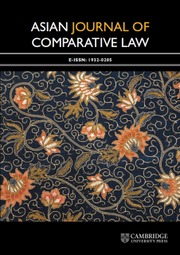National Security Secrecy
Excessive government secrecy in the name of counterterrorism has had a corrosive effect on democracy and the rule of law. In the United States, when controversial national security programs were run by the Bush and Obama administrations - including in areas of targeted killings, torture, extraordinary rendition, and surveillance - excessive secrecy often prevented discovery of those actions. Both administrations insisted they acted legally, but often refused to explain how they interpreted the governing law to justify their actions. They also fought to keep Congress from exercising oversight, to keep courts from questioning the legality of these programs, and to keep the public in the dark. Similar patterns have arisen in other democracies around the world. In National Security Secrecy, Sudha Setty takes a critical and comparative look at these problems and demonstrates how government transparency, privacy, and accountability should provide the basis for reform.
- Considers national security secrecy from a comparative perspective, offering a broader perspective on an aspect of counterterrorism law and policy than most books
- Engages the reader in analyzing the role of the public in combatting national security secrecy
- Considers national security secrecy in both of the post-9/11 US administrations, appealing to readers looking to avoid politically motivated or partisan analyses
Reviews & endorsements
'An illuminating discussion of the costs of secrecy and how Congress and the Courts have condoned such an anti-democratic state of affairs. Its attention to how European courts and institutions have more vigourously challenged governmental claims of secrecy is exceptional.' Kent Roach, Professor of Law and Chair in Law and Public Policy, University of Toronto
'With insightful analysis, Sudha Setty demonstrates how the misuse of secrecy by governments in the United States and other countries has done serious damage to individual rights, democratic values, and the rule of law. We need to restore legislative and judicial checks on misleading executive assertions.' Louis Fisher, Scholar in Residence, The Constitution Project
'Sudha Setty writes with remarkable dexterity about the exponential increase in the powers of the state to remain secret while enhancing national security regimes in the war against terror. Setty gives a comprehensive account of how national security secrecy is enabled legally and politically in contemporary democracies at the expense of structural accountability, rule of law and fundamental rights.' Ujjwal Kumar Singh, University of Delhi
Product details
July 2017Paperback
9781107576476
244 pages
228 × 153 × 15 mm
0.37kg
Available
Table of Contents
- Introduction
- Part I. The Infrastructure of Secrecy in the United States:
- 1. Executive branch secrecy
- 2. Congressional complicity
- 3. An overly deferential judiciary
- Part II. Comparative Perspectives on Transparency:
- 4. International and supranational norms
- 5. The United Kingdom
- 6. India
- Part III. Societal Tolerance for National Security Secrecy:
- 7. Public and political resilience
- 8. Individual privacy and secrecy: a matter of contract or a human right?
- Conclusion.

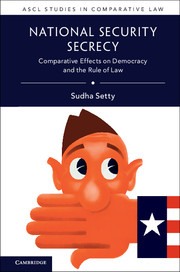
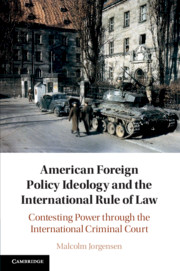
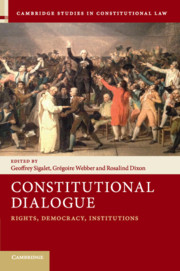
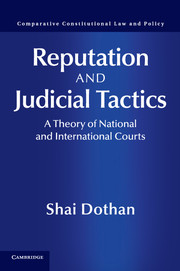

.jpg)
